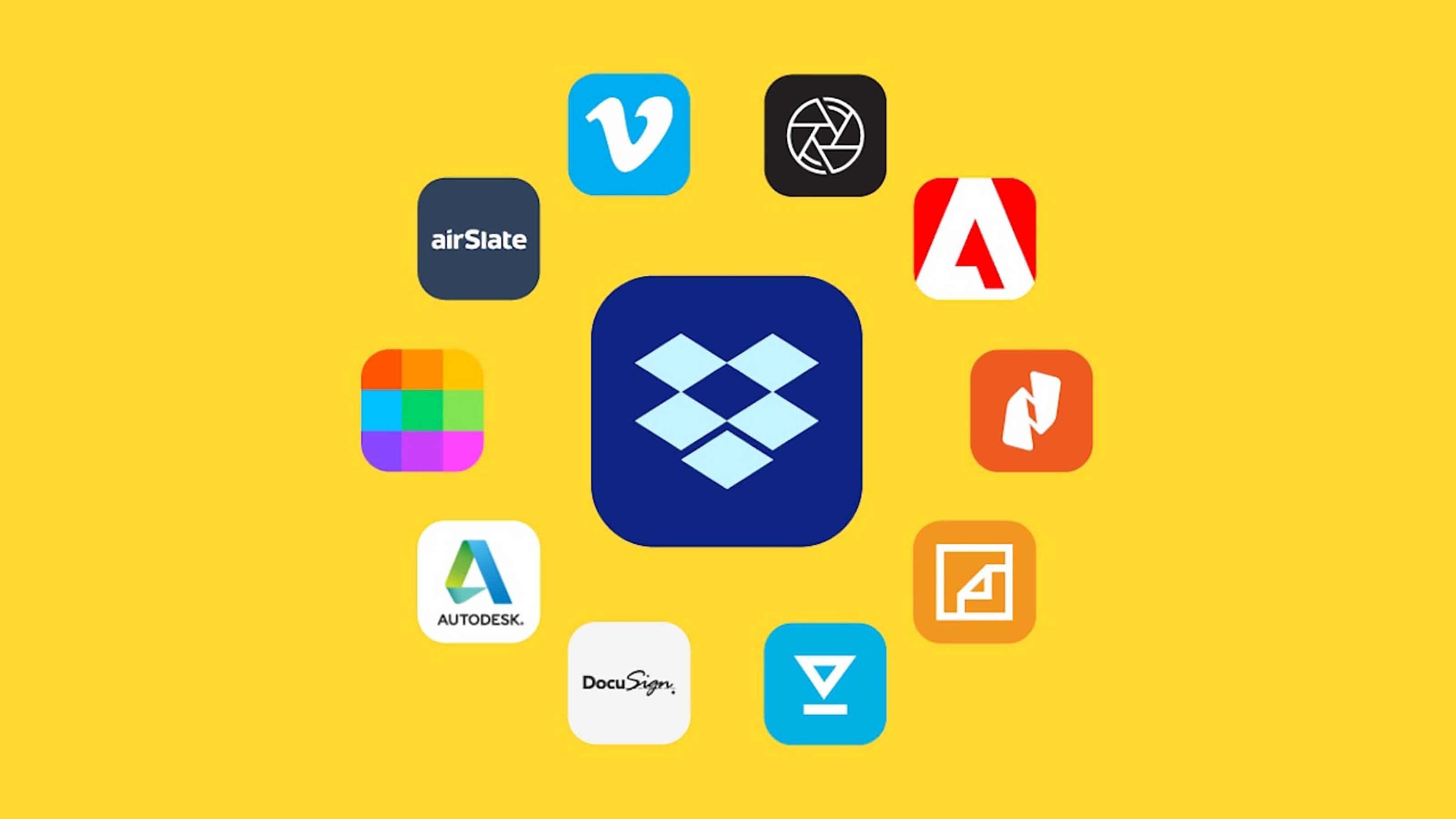17 Wonderful Work-From-Home Stocks to Buy
Is the run in work-from-home stocks over? The pros don't think so. These 17 "WFH" stocks appear poised to continue climbing on the longer-term remote-work trend.


Profit and prosper with the best of Kiplinger's advice on investing, taxes, retirement, personal finance and much more. Delivered daily. Enter your email in the box and click Sign Me Up.
You are now subscribed
Your newsletter sign-up was successful
Want to add more newsletters?

Delivered daily
Kiplinger Today
Profit and prosper with the best of Kiplinger's advice on investing, taxes, retirement, personal finance and much more delivered daily. Smart money moves start here.

Sent five days a week
Kiplinger A Step Ahead
Get practical help to make better financial decisions in your everyday life, from spending to savings on top deals.

Delivered daily
Kiplinger Closing Bell
Get today's biggest financial and investing headlines delivered to your inbox every day the U.S. stock market is open.

Sent twice a week
Kiplinger Adviser Intel
Financial pros across the country share best practices and fresh tactics to preserve and grow your wealth.

Delivered weekly
Kiplinger Tax Tips
Trim your federal and state tax bills with practical tax-planning and tax-cutting strategies.

Sent twice a week
Kiplinger Retirement Tips
Your twice-a-week guide to planning and enjoying a financially secure and richly rewarding retirement

Sent bimonthly.
Kiplinger Adviser Angle
Insights for advisers, wealth managers and other financial professionals.

Sent twice a week
Kiplinger Investing Weekly
Your twice-a-week roundup of promising stocks, funds, companies and industries you should consider, ones you should avoid, and why.

Sent weekly for six weeks
Kiplinger Invest for Retirement
Your step-by-step six-part series on how to invest for retirement, from devising a successful strategy to exactly which investments to choose.
Many businesses have taken at least a short-term hit from the COVID-19 economic shutdown, but a few fortuitously positioned companies have actually thrived. And arguably the biggest winners have been so-called work-from-home, or WFH, stocks.
Many tech companies in industries such as video conferencing and cloud storage have seen their shares easily beat the market through 2020's first half, in some cases doubling and even tripling. These companies were already enjoying stepped-up investments in software and services that enable remote work, but the COVID-19 pandemic took that shift into overdrive.
Many experts believe work-from-home is a trend with legs. What began as a temporary way to keep employees safe is becoming a permanent movement for large companies including Facebook, Nationwide, Mondelez and Barclays, who see remote work as a way to reduce office rents and tap a broader talent pool. According to a Gartner Group survey, 75% of companies plan to let more employees work remotely. Employees are embracing this trend too; a Gallup poll shows 60% want to continue working remotely after restrictions end.
Here are 17 work-from-home stocks to buy that are at the epicenter of this phenomenon. Each of these provides a way to leverage this trend well into the future – including one play that lets you invest across dozens of WFH stocks at once.
Data is as of June 30.

Zoom Video Communications
- Market value: $71.5 billion
- Industry: Video conferencing
Virtual conferencing provider Zoom Video Communications (ZM, $253.54) is one of the first work-from-home stocks that most people think of. Its potential was evident earlier this year, and it has lived up to the hype with a 273% year-to-date gain.
Zoom has experienced a surge in users during the COVID-19 lockdown. As many as 200 million users are logging on each day; that figure was just 10 million daily users on average before the pandemic. Zoom now ranks as the top video conferencing platform in the U.S. at a nearly 43% share.
Artisan Mid Cap Fund (ARTMX), in its Q1 investor letter, says "Zoom's low-cost capabilities (cloud-based hardware and software) and ease of use have been clear differentiators we believe could disrupt the corporate communication and collaboration landscape." Artisan believes Zoom's long-term growth outlook is compelling both for legacy products like Zoom Meeting, and products that address new areas for the company such as phone and chat.
ZM's revenues increased 169% during the March quarter, marking its eighth consecutive quarter of greater-than-130% sales growth. Adjusted earnings per share (EPS) grew nearly seven-fold, and the company's number of customers accounting for $100,000-plus in trailing-12-month revenue jumped by 90%.
Also boding well for the ongoing strength of the business was a swell of free cash flow, at nearly $252 million, versus just around $15 million in the year-ago period. Zoom ended the March quarter with more than $1.1 billion of cash and marketable securities on its balance sheet.
Bernstein analyst Zane Chrane (Outperform) boosted his 12-month price target in June from $157 per share to $228. He thinks Zoom will show strength "among enterprise customers where we expect reduced churn and strong future expansion," and anticipates positive sales and earnings surprises for the rest of this year.

Teladoc Health
- Market value: $15.0 billion
- Industry: Telehealth
Telehealth service Teladoc Health (TDOC, $190.84) connects patients with physicians via its secure online platform. The company generates revenues by charging fees to insurance companies that offer telehealth services; it also earns per-visit fees from customers not covered by insurance.
Teladoc has experienced unprecedented daily visit volume during the pandemic as patients needing medical attention consult with doctors while maintaining social distancing via a virtual doctor visit.
Total patient visits soared 92% during the March quarter to 2 million, and its U.S. paid memberships rose 61% to 43 million. Revenues grew 41% and adjusted EBITDA (earnings before interest, taxes, depreciation and amortization) improved nearly 10-fold to $10.7 million.
TDOC is now guiding for 8 million to 9 million total patient visits in 2020, and full-year adjusted EBITDA of $70 million to $80 million. In 2019, the company earned adjusted EBITDA of $31.8 million on 4.1 million visits.
Teladoc addresses a 1.1 billion-patient market worldwide. So far, it has tapped less than 1% of that market. Growth in patient visits and revenues has been consistent, with each rising more than 60% annually since 2016.
Ten of the 13 analysts covering TDOC stock have it among their work-from-home stocks to buy; the rest have it at Hold. Among them is Piper Sandler (Overweight, equivalent of Buy), which said a recent survey it conducted showed 10x growth in annualized utilization for telemedicine in the second quarter versus Teladoc's previous nine-quarter average. Analyst Sean Wieland calls this a "transformational shift" to virtual care.

Slack Technologies
- Market value: $17.5 billion
- Industry: Communications software
Slack Technologies (WORK, $31.09) provides software for instant messaging and collaborative services primarily targeting the enterprise. Its basic service is free, but many customers opt for additional paid services that include unlimited message storage and apps, group calls and other perks.
While WORK's year-to-date gains of 40% aren't as robust as other WFH stocks on this list, it nonetheless was a popular option among companies shifting to remote work during the pandemic. During Slack's April quarter, it added 12,000 new paying, and more than 90,000 net new organizations joined via free or paid plans.
Slack's revenues rose 50% during the quarter, and its adjusted net loss dropped significantly. That said, the price of WORK shares fell in response to its report due to guidance suggesting momentum was slowing. Slack anticipates 34% to 37% revenue growth this year, down from 57% growth last year.
Slack ended the April quarter with 122,000 paying customers, which is tiny compared to 75 million users of rival Microsoft's Team product. Still, Slack recently added Verizon (VZ) and Amazon.com (AMZN) as customers; not only are those contracts valuable on their own, but they should also help attract other paying customers.
"Although Slack claims it's not a tool that was specifically designed for remote work, the company is seeing category expansion and positive demand trends from the current environment," writes William Blair analysts, who rate the stock at Outperform. "We believe organizations will continue to invest in collaboration/communication tools in an effort to modernize communication and become more agile as workforces get more distributed in a post-COVID world."

Chegg
- Market value: $8.3 billion
- Industry: Education
In addition to workplace changes to adopt to social distancing, schools are accelerating the adoption of online learning, creating tailwinds for on-demand learning platforms such as Chegg (CHGG, $67.26). The company has been growing its subscriber base by roughly 30% a year and expects subscriber growth to accelerate to 45% during the June quarter.
During the March quarter, Chegg's revenues rose 35% and adjusted EBITDA improved by 33% during the March quarter as the company benefitted from more students and institutions embracing online learning, its' recent international expansion and acquisitions. Thinkful, a skill course platform Chegg acquired last year, is experiencing tremendous growth as laid-off workers look for ways to acquire new in-demand skills.
Chegg also recently strengthened its direct learning tools by acquiring Mathway, a math education mobile app. Mathway covers a broad range of math subject areas (over 400 different topics) and was used to solve over 1.3 billion math equations last year.
Investment firm Jeffries selected Chegg as one of its "cash flow darlings" in June. These companies increased cash flow during the March quarter and maintained low-debt balance sheets – not an easy accomplishment amid the U.S. recession.
And JPMorgan analyst Doug Anmuth raised his CHGG price target in May, citing multiple growth drivers including strong international adoption, rising study pack take rates and overall engagement as more students shift to online learning.

CrowdStrike Holdings
- Market value: $21.7 billion
- Industry: Cybersecurity
CrowdStrike Holdings (CRWD, $100.29) provides antivirus protection via a software-as-a-service (SAAS), subscription model that encompasses endpoint security, vulnerability management and threat assessment and intelligence. Its proprietary software uses artificial intelligence (AI) to defend customers against cyberattacks.
This work-from-home stock generates 91% of its revenues from subscriptions. CrowdStrike's subscription customer total jumped 116% in 2019 to 6,200, and it surged 105% in the April quarter. CrowdStrike serves 49 of the Fortune 100 companies, 11 of the top 20 banks and 40 of the top global 100 companies.
Users like CrowdStrike's AI-powered, cloud-based technology because it's easier to deploy and less expensive than legacy solutions. In addition to continuous virus protection, its software gets "smarter" and increasingly more effective as more data is consumed.
CrowdStrike's revenues rose 85% in the April quarter, including an 88% improvement in annual recurring revenue. Importantly, the company flipped from a 55-cent-per-share adjusted loss in the year-ago quarter to a 2-cent profit. The company also generated $87 million of free cash flow and ended the quarter with $1 billion in cash and equivalents on its balance sheet.
Oppenheimer analyst Shaul Eyal reiterated an Outperform rating in June and boosted his price target on CRWD from $85 per share to $110, writing, "We believe CrowdStrike can displace and replace competitors' solutions and take market share from legacy and next-gen antivirus vendors." He also highlighted a $30 billion addressable market for virus protection growing 10% annually.

Atlassian Corporation
- Market value: $44.2 billion
- Industry: Productivity software
Atlassian (TEAM, $180.27) specializes in team collaboration software that enables user to create and share content. The company's software is used by more than 171,000 customers, including mega-caps such as Bank of America (BAC), Verizon, Spotify (SPOT) and NASA.
Atlassian accelerated the planned rollout of free cloud editions of its core Jira and Confluence products to build market share during the March quarter. Free cloud editions have helped the company expand its user base in the past, build brand awareness and convert new users to paying customers. Early indications were promising; the company said in an end-of-April shareholder letter that signups from new users had increased 125% "in recent weeks."
Atlassian added more than 6,200 new customers during the March quarter. Revenues shot 33% higher while adjusted profits grew by 19%. The company's current full-year estimates are for revenues exceeding $1.5 billion, adjusted EPS above $1.06 and more than $445 million in free cash flow. Balance sheet cash and short-term investments currently exceed $2.1 billion, providing Atlassian with plenty of capital to fund its growth initiatives.
Goldman Sachs' Heather Bellini (Buy) recently raised her price target on TEAM stock from $194 per share to $219. That was part of a rash of PT upgrades Bellini made in the industry to reflect "higher peer multiples, lower interest rates, and reduced equity risk premiums."

Akamai Technologies
- Market value: $17.0 billion
- Industry: Online content delivery
Akamai Technologies (AKAM, $107.09) is market leader in content delivery networks (CDNs), which balance and secure Internet traffic loads and ensure a smoothy operating network. Customers contract with Akamai to balance and secure their Internet traffic loads and ensure smooth network operations.
Akamai's Intelligence Edge platform enables customers to extend their existing cloud architecture and accelerate speeds and reliability. The platform consists of more than 250,000 servers deployed across 3,900 locations worldwide and tied together with sophisticated software and algorithms.
Customers include Adobe (ADBE), Airbnb, China's Alibaba (BABA), (FDX) and many other large companies and public agencies such as the Federal Aviation Administration, the U.S. Treasury, and the Department of Defense.
Akamai's revenues rose 8% in the March quarter, fueled by a 26% spike in its Cloud Security Solutions business. EPS jumped 15% year-over-year. And $2.2 billion in cash and marketable securities gives Akamai capacity for capital investments and share repurchases.
Following reports that Amazon.com was considering adding 24/7 live TV to its Prime offerings, Piper Sandler's James Fish (Overweight) upped his price target on AKAM shares from $114 to $119. He writes that the Amazon reports and other news "further accelerate the 'Year of the CDN' more than we initially thought," putting AKAM solidly among the top work-from-home stocks to buy.

Dropbox
- Market value: $9.0 billion
- Industry: Cloud storage
Developed initially as a cloud-based storage system for very large files, Dropbox (DBX, $21.77) is evolving its model to become a cloud-based collaboration platform that integrates other cloud-based services such as video communications and collaboration software.
The company provides free data storage to more than 600 million users and is tapping opportunities to convert these into paid subscribers via premium service packages. DBX's number of paid subscribers grew to 14.6 million last quarter from 13.2 million a year earlier, reflecting a 25% rise in daily trials of its premium package Dropbox Plus during the COVID-19 shutdown. Trials of its enterprise-level product for business customers surged 40%.
Unlike other work-from-home stocks, Dropbox is consistently profitable. Per-share earnings have grown year-over-year for eight consecutive quarters, and it has beaten analyst estimates in each of those periods.
Citi analyst Walter Pritchard (Buy) calls Dropbox "an underappreciated play on the wide content collaboration opportunity." RBC analyst Alex Zukin has an Outperform rating on DBX shares and likes the company's efficient, profitable growth and modest valuation relative to other tech stocks.

DocuSign
- Market value: $31.6 billion
- Industry: Electronic agreements
DocuSign (DOCU, $172.21) is the market leader in e-signatures, which enable users to electronically sign documents from anywhere in the world and from virtually any device. More than half a million business customers and hundreds of millions of users from more than 180 countries have used DocuSign software to prepare, sign and manage contracts.
DocuSign recorded a stellar April quarter. Billings rose 59%, revenues improved by 39% and adjusted EPS popped 71%. Its overall customer base swelled by 30% to 661,000 subscribers, and the number of enterprise customers rose 49%. Boding well for future quarters is the company's customer growth and high revenue visibility, with a whopping 94% of revenues consisting of subscription revenues.
The recent acquisition of Seal Software, a leading contract analytics and AI technology provider, should enable DocuSign to bring AI intelligence to its to its product portfolio of products and make its online platform smarter.
"We view DOCU as a core investment holding because it is lightly penetrated in a large (total addressable market), and is a proven growth compounder operating in the attractive back-office-automation category with expanding margins," writes Oppenheimer analyst Koji Ikeda, who initiated coverage of DOCU shares in June with an Outperform rating.

Roku
- Market value: $14.1 billion
- Industry: Streaming content
Work-from-home is one aspect of the shutdown; another is play-from-home. Video streaming service Roku (ROKU, $116.53) offers Americans cheap entertainment and has been a prime beneficiary of that trend during the COVID-19 shutdown.
Roku's new accounts grew by more than 70% during the April quarter, the number of active accounts increased 38% and streaming hours expanded by 80%.
Nearly half of all TV viewing by adults age 18-34 has consisted of streamed services during the COVID-19 shutdown, and trials of video-on-demand services are way up. Roku has been able to leverage surging viewership into captured advertising spending as corporate customers transition from traditional TV advertising to the video streaming space.
Roku's revenues rose 55% in the April quarter, extending a multiyear track record of topping consensus EPS and sales estimates. That said, the report didn't electrify investors. Rising expenses resulted in operating-margin declines, causing analysts to revise full-year EPS estimates downward, and causing Wall Street to keep its distance. Indeed, unlike most WFH stocks that are up in 2020, ROKU shares are actually off double digits year-to-date.
Needham analyst Laura Martin rates ROKU shares at Buy, writing that the company will reap the benefits of ad spending transitioning from traditional TV to streaming video. She looks for 39% growth in active accounts this quarter. Oppenheimer analyst Jason Helfstein raised his ROKU price target in June, citing a faster-than-expected recovery in advertising spending after the COVID-19 slump.
13 Best Vanguard Funds for the Next Bull Market

Take-Two Interactive Software
- Market value: $15.9 billion
- Industry: Video games
Another play-at-home beneficiary is video gaming powerhouse Take-Two Interactive Software (TTWO, $139.57).
Take-Two owns the iconic video gaming franchise Grand Theft Auto, which has sold more than 290 million copies. Other blockbusters in the company's gaming portfolio include Red Dead Redemption, The Outer Worlds and Borderlands. The company also partners with the NBA for gaming titles, and recently secured a multiyear agreement with the NFL to produce "non-simulation" football gaming titles starting next year.
Take-Two Interactive says it has the deepest game development pipeline in its history, including multiple new titles for the mobile gaming market. The shift to mobile gaming helps profit margins since it eliminates the need to manufacture hard copies.
Sales of video games are booming. The industry saw sales jump 52% in May, the third straight month of big year-over-year sales gains and the best May for the gaming industry since 2008. Take-Two's March quarter results were promising, too, with sales up 41% and EPS gaining 114%.
Among analysts who have TTWO among their work-from-stocks to buy is BMO analyst Gerrick Johnson. Johnson upgraded the stock to Outperform in May, citing the company's strong core franchise and ability to capitalize on opportunities in new platforms, distribution models and gaming genres.

Peloton Interactive
- Market value: $16.4 billion
- Industry: Fitness technology
Social distancing requirements closed fitness centers nationwide and created unparalleled new opportunities for digital fitness platforms such as Peloton Interactive (PTON, $57.77).
Peloton boasts the world's largest interactive fitness platform with more than 2.6 million members. The company is a pioneer in connected, technology-enabled fitness, and was among the first to stream immersive, instructor-led fitness classes for members.
Peloton offers high-technology bikes and treadmills that feature built-in touchscreens for accessing a library of workout videos. The company also recently introduced new apps that enable subscribers to view live and online fitness classes on TVs.
Peloton's number of connected fitness subscribers soared by 94% during the March quarter, and paid digital subscribers rose 64%. The company provided 44.2 million workouts to subscribers, resulting in 66% sales growth. For full-year 2020, Peloton upgraded its guidance; it now sees revenues growing by 89% and subscriber count more than doubling.
Bank of America analyst Justin Post raised his PTON price target from $48 per share to $54 in June.
"TV distribution is important as Peloton subscribers can view live and on-demand fitness classes, including exercises that can be done on the floor with a mat (such as yoga, stretching, and meditation) in a convenient location," he writes. "Peloton bikes and treads already feature a built-in touchscreen for accessing workout videos, but TV apps allow the videos to be watched on bigger screens without phone casting."
Cowen analyst John Blackledge recently called PTON his best small-to-mid-sized market value investment idea, citing multi-year secular tailwinds from the connected home fitness trend that Peloton helped create.

Chewy
- Market value: $17.9 billion
- Industry: Pet care retail
In addition to working from home, consumers are increasing shopping from home. Pet supplies e-retailer Chewy (CHWY, $44.69) has been a major beneficiary of that trend – as well as people adopting pets at a rapid clip throughout the pandemic.
Chewy sells pet foods, medications, treats and other pet supplies via the Internet and derives more than 70% of revenues from its subscription-style Autoship program, ensuring steadily rising recurring revenues. Chewy is the market leader in the online pet food segment, with an estimated 50% share of this market.
CHWY sales rose 46% during the May quarter, including a 48% pop in Autoship revenues to a record $1 billion. But more importantly, the company delivered its first three months of positive EBITDA. Chewy also added a record 1.6 million net active customers, which is more than twice its typical quarterly customer growth. Its customer base of 15 million active customers is nearly 33% larger than it was in the year-ago quarter.
Management told investors that it believes these higher demand levels are sustainable and reflect an accelerating pace of e-commerce adoption that is not likely to revert to pre-pandemic levels.
JPMorgan's Doug Anmuth rates CHWY shares at Overweight, writing, "We believe CHWY is well positioned for many qtrs/years ahead to benefit from the accelerated shift of pet spend online, which in our view is still in the early innings." Anmuth also thinks that Chewy's investments in prescription medications and private label will expand its addressable market even further.

Microsoft
- Market value: $1.54 trillion
- Industry: Software
Pandemic-fueled gains in its Azure cloud business have been a major growth catalyst for software giant Microsoft (MSFT, $203.51), which has seen soaring demand for its library of work-from-home tools (Skype, Office 365 and Microsoft Teams).
Azure cloud revenues rose 59% during the March quarter. Office 365 Commercial revenues improved 25%. And Microsoft Teams experienced 70% growth in its Teams daily active user base to 75 million users collaborating on its platform. Microsoft's overall revenues grew 15% and EPS improved 23%.
This technology powerhouse also generated 25% free cash flow growth to $13.7 billion during the March quarter. That allowed the company to dole out $9.9 billion to shareholders in the form of dividends and share buybacks.
Microsoft is arguably among the earliest work-from-home stocks, and it has a large bull camp. Twenty-three of 24 analysts that have written about MSFT over the past three months have assigned a Buy-equivalent rating to shares.
In June, Wells Fargo analyst Philip Winslow said he expects Microsoft to reach a $2 trillion market value within two years. He looks for steady low-to-mid-teens sales gains, which will be fueled by 20% cloud products growth, annual EPS expansion in the mid- to high teens, and accelerating free cash flow growth.
JPMorgan analyst Mark Murphy is equally bullish. He writes that MSFT shares "can grind higher as it cements itself at the center of digital transformations and a new reality of more remote work and learning."

Amazon.com
- Market value: $1.38 trillion
- Industry: Online retail
Online retailing giant Amazon.com (AMZN, $2,758.82) might emerge as one of the biggest winners among WFH stocks.
Amazon.com famously operates the world's largest e-commerce site, offering books, electronics, software, apparel, food and other merchandise. A big profit engine for Amazon's e-commerce business is its paid membership program, Amazon Prime, which offers free shipping and free streaming TV and videos to Prime members. Approximately 150 million Americans are Prime subscribers.
In addition to online retail, Amazon.com is a leading cloud services provider through its Amazon Web Services (AWS) segment. AWS customers include Netflix (NFLX), LinkedIn, Adobe, the BBC, Turner Broadcasting and other large businesses.
Amazon's net sales grew 26% to $75.5 billion during the March quarter and operating cash flow rose 16% to $39.7 billion. While the company beat analyst estimates on sales, Amazon also reported a rare miss on EPS, which declined 29% due to COVID-19 costs for hiring additional workers, enhancing facility cleaning, purchasing protective gear for workers and developing its own coronavirus testing capabilities.
Amazon recently entered the autonomous ride-hailing vehicle space via the $1.2 billion acquisition of Zoox. It also is considering providing 24/7 live TV in addition to its Prime Video content, which would further differentiate its offering from other streaming competitors.
Wedbush analyst Michael Pachter (Outperform) substantially raised his price target in June, from $2,750 per share to $3,050. He says the company will reap "substantial earnings over the long term by growing spending more slowly than revenues." He also anticipates steadily improving margins from AWS, Fulfillment by Amazon and ads, while Prime will drive gains in the company's retail business.

PayPal
- Market value: $204.5 billion
- Industry: Electronic payments
Rising demand for contactless payment solutions amid the pandemic has also sped up the opportunity for digital payment processors like PayPal (PYPL, $174.23). According to PayPal CEO Daniel Schulman, the pandemic has caused e-commerce and digital payment trends to accelerate – he believes that what would have taken three to five years to achieve has happened in just three months.
PayPal began 2020 slowly. Revenues rose 12% in the March quarter, missing management guidance, and EPS actually declined due to the company's decision to boost credit loss reserves in anticipation of rising defaults. However, PayPal's June quarter started very strong: 7.4 million new accounts opened during April, while payment volumes and revenues grew by more than 20% in the month. PYPL now expects to add 15 million to 20 million new accounts total for the June quarter.
PayPal applied to be a Paycheck Protection Program lender and has so far distributed more than $1 billion of loans to user accounts, which should help boost future transaction fees. The company also benefitted as many consumers deposited stimulus checks in their PayPal account rather than a conventional bank account.
PYPL is addressing demand for contactless payment with the rollout of QR functionality – which allows touch-free payments to vendors – on its PayPal app. The January acquisition of Honey Science Corp. gives PayPal new tools for contactless payment that expand consumer engagement and sales to merchants. Honey's net new users grew 180% in April compared to pre-pandemic levels.
While ongoing investments in its payment platform make PayPal's income growth erratic, free cash flow has improved steadily; FCF rose 60% in the March quarter to $1.3 billion. That strong cash flow enables PayPal to fund expansion using minimal debt while continuing to make acquisitions and buy back stock.
Both Citi and Susquehanna have Buy ratings on PYPL stock and raised their price target in June. Citi analyst Ashwin Shirvaikar especially likes the QR functionality on PayPal's app, which he believes holds massive relevance for consumers in the pandemic era.

Direxion Work From Home ETF
- Assets under management: N/A*
- Industry: Remote work technologies
- Expenses: 0.45%, or $45 annually on a $10,000 investment
If you like most of the WFH stocks on this list but don't want to manage a whole portfolio of them, consider the Direxion Work From Home ETF (WFH, $51.09).
The WFH ETF launched in late June, and it currently invests in 40 work-from-home stocks across remote communications, cybersecurity, online project and document management, and cloud computing. The ETF tracks the Solactive Remote Work Index, which is comprised of companies that are enabling and advancing remote work.
Holdings include aforementioned stocks such as CrowdStrike and Zoom Video, as well as cybersecurity play Fortinet (FTNT), cloud communications platform Twilio (TWLO) and more.
David Mazza, Managing Director, Head of Product, Direxion, notes that despite the powerful trends that have lifted work-from-home stocks all year, the tracking index actually trades at cheaper sales and earnings multiples than the Nasdaq; its price is actually closer to that of the broader S&P 500 Index.
"The broader trend here is about identifying technologies that help power individuals to have more flexible work," Mazza says. "I think society as a whole, even before the pandemic, has accepted that a person doesn't need to be chained to their desk from 9 to 5 to do their job. There are benefits to collaboration and being together with your peers and employees, but the requirement to do that all together sitting next to each other in a row has been fading, and now is fading faster because of the situation we find ourselves in."
* WFH is a new fund. The major market data providers do not have asset information on WFH as of this writing.
Profit and prosper with the best of Kiplinger's advice on investing, taxes, retirement, personal finance and much more. Delivered daily. Enter your email in the box and click Sign Me Up.

Lisa currently serves as an equity research analyst for Singular Research covering small-cap healthcare, medical device and broadcast media stocks.
-
 How Much It Costs to Host a Super Bowl Party in 2026
How Much It Costs to Host a Super Bowl Party in 2026Hosting a Super Bowl party in 2026 could cost you. Here's a breakdown of food, drink and entertainment costs — plus ways to save.
-
 3 Reasons to Use a 5-Year CD As You Approach Retirement
3 Reasons to Use a 5-Year CD As You Approach RetirementA five-year CD can help you reach other milestones as you approach retirement.
-
 Your Adult Kids Are Doing Fine. Is It Time To Spend Some of Their Inheritance?
Your Adult Kids Are Doing Fine. Is It Time To Spend Some of Their Inheritance?If your kids are successful, do they need an inheritance? Ask yourself these four questions before passing down another dollar.
-
 Nasdaq Slides 1.4% on Big Tech Questions: Stock Market Today
Nasdaq Slides 1.4% on Big Tech Questions: Stock Market TodayPalantir Technologies proves at least one publicly traded company can spend a lot of money on AI and make a lot of money on AI.
-
 Nasdaq Drops 172 Points on MSFT AI Spend: Stock Market Today
Nasdaq Drops 172 Points on MSFT AI Spend: Stock Market TodayMicrosoft, Meta Platforms and a mid-cap energy stock have a lot to say about the state of the AI revolution today.
-
 S&P 500 Tops 7,000, Fed Pauses Rate Cuts: Stock Market Today
S&P 500 Tops 7,000, Fed Pauses Rate Cuts: Stock Market TodayInvestors, traders and speculators will probably have to wait until after Jerome Powell steps down for the next Fed rate cut.
-
 S&P 500 Hits New High Before Big Tech Earnings, Fed: Stock Market Today
S&P 500 Hits New High Before Big Tech Earnings, Fed: Stock Market TodayThe tech-heavy Nasdaq also shone in Tuesday's session, while UnitedHealth dragged on the blue-chip Dow Jones Industrial Average.
-
 Dow Rises 313 Points to Begin a Big Week: Stock Market Today
Dow Rises 313 Points to Begin a Big Week: Stock Market TodayThe S&P 500 is within 50 points of crossing 7,000 for the first time, and Papa Dow is lurking just below its own new all-time high.
-
 Nasdaq Leads Ahead of Big Tech Earnings: Stock Market Today
Nasdaq Leads Ahead of Big Tech Earnings: Stock Market TodayPresident Donald Trump is making markets move based on personal and political as well as financial and economic priorities.
-
 11 Stock Picks Beyond the Magnificent 7
11 Stock Picks Beyond the Magnificent 7With my Mag-7-Plus strategy, you can own the mega caps individually or in ETFs and add in some smaller tech stocks to benefit from AI and other innovations.
-
 Dow Dives 870 Points on Overseas Affairs: Stock Market Today
Dow Dives 870 Points on Overseas Affairs: Stock Market TodayFiscal policy in the Far East and foreign policy in the near west send markets all over the world into a selling frenzy.
